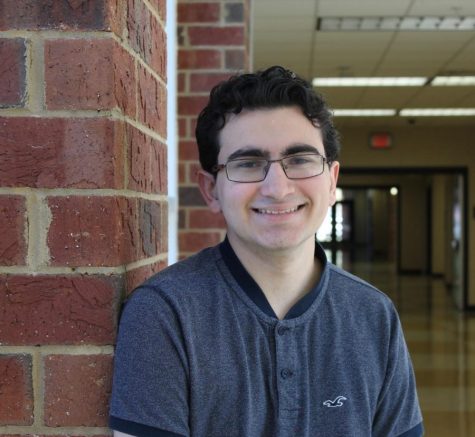Guardian of the Internet: How Effective is the School’s Firewall?
October 9, 2019
In 1975, Apple donated units of the Apple I to classrooms across the United States. From this humble beginning, computers in the classroom have grown to near-ubiquity.
In those days, when the usage of devices in the classroom was in its infancy and the technology itself less sophisticated, it was simple to prevent students from abusing it.
However, 2019 is very different from those days. Students have found many ways to evade the school’s restrictions on how students use the internet.
Chief among these methods are two: virtual private networks (VPNs) and mobile data.
A VPN allows students to do various things, like falsify their location, secure their personal information and evade restrictions on internet usage. For students of this school, that last part is the most important.
This functionality has been used on greater scales to avoid firewalls in authoritarian countries. It is far less grand in school, but brings up just as much of a question about the efficacy of the firewalls.
The more common method students use to circumvent this barrier is to use mobile data rather than the school’s Wifi.
Mobile data is the ability of a smartphone to have an internet connection without the use of a router. Bought from their service provider, it allows students to access the internet without the school’s wifi, thus avoiding the restrictions associated with it.
Some students, however, either don’t mind the firewall or don’t care enough to violate it.
Between the three — VPNs, data and compliance — 42 students were asked which they were most used to.
Twenty-four students, or 57%, said they use some method of avoiding the school firewall. The vast majority, 22, used mobile data.
There are reasons to believe this number may be even higher; people might have been wary to admit they do something against the rules, and many who used mobile data did not recognize that name for it. They instead said they used their phone’s internet.
Many students said they primarily use these firewall-evading methods to use social media at school; however, none were willing to go on the record to discuss their phone habits in detail.
The fact that the majority of students are not following the school’s regulations raises the question: how feasible is the enforcement of these regulations?
According to Laura Morgan, the school’s media education and technology instructor, enforcement of the firewall has become a priority in the new year.
“I think [the enforcers] stepped up their game,” she said.
Morgan said that as of now, about 20 to 30 students have been permanently blocked from the school internet on their tablets for using VPNs.
Last year, students would be unblocked if they asked, but that policy has ended.
Additionally, she said the enforcement of the firewall is mainly in relation to preventing the misuse of tablets. Students’ personal phones are not much of a concern, but the tablets, as school property, are of greater interest, Morgan said.
Another good example of the new policies is network security app GlobalProtect. Sophomore and member of the school’s iBears tech support team Ulrich Muller said this is the school’s answer to the use of mobile data on tablets.
Muller said the school has begun to make efforts in the new year against the endemic use of mobile data among students, which GlobalProtect stops from bypassing the firewall.
Enforcing the restrictions is a high priority. The school receives federal funding, and so must adhere to the Children’s Internet Protection Act, which withholds funding from schools that do not block potentially obscene material.
Nevertheless, it has its critics.
Junior Taylor Pannell said the firewall “blocks a lot of resources for school,” while also saying “it blocked what it needs to block well.” It creates issues when, for example, a teacher is unable to show a video online.
The firewall itself is handled on a county level, with Fulton County making decisions for the schools under its purview. Individual schools have little power over it beyond regular enforcement measures for students who break the rules.
For the time being, though, the firewall only exists for less than half the student body.
